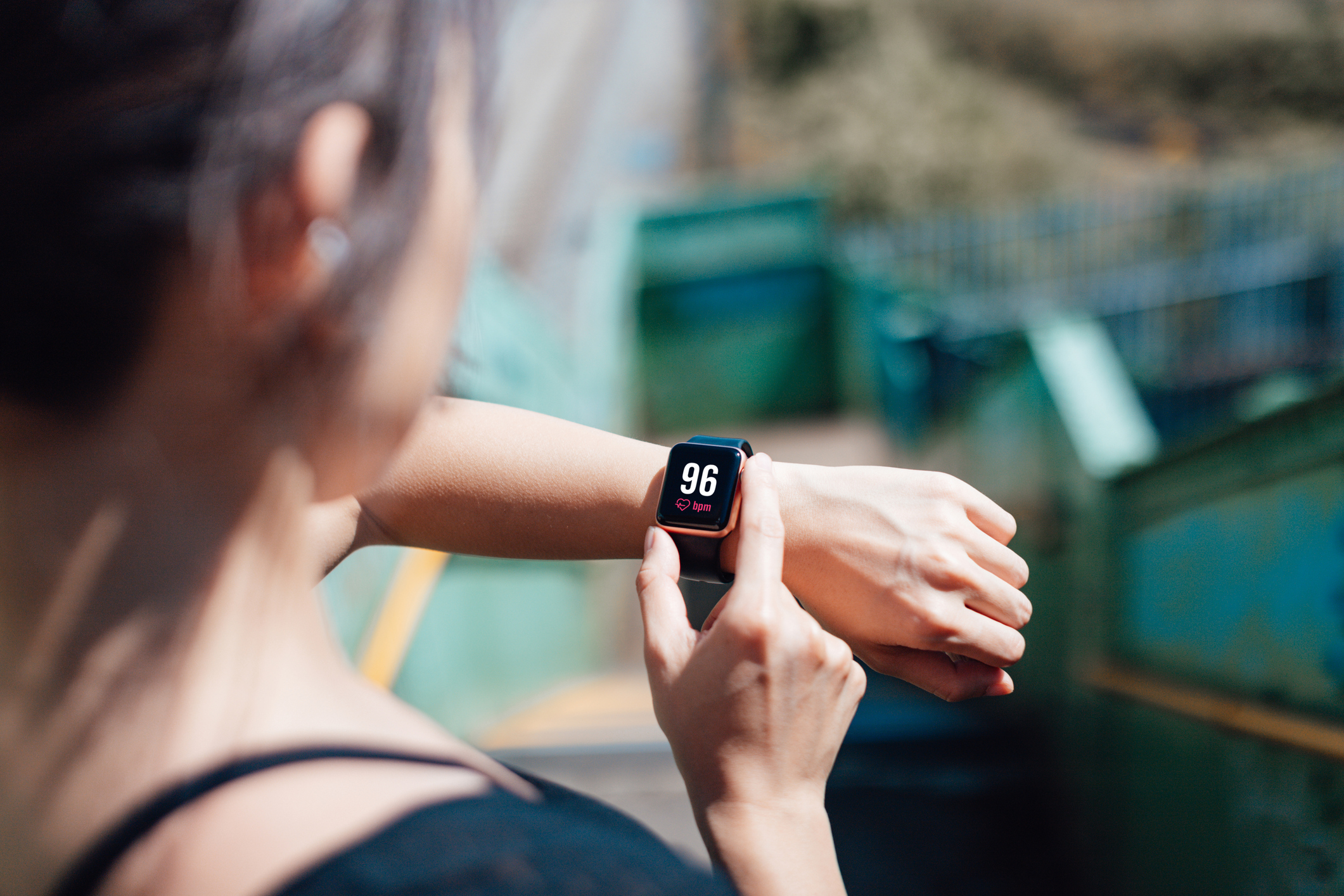A new study reveals a gap in women's knowledge about their hormones. Here's how healthtech aims to close it
Over 50% of women don't understand their hormones. Here, Irina Karelina from fertility tracker Mira explores how healthtech is making information more accessible.

Over 50% of women don't understand their hormones. Here, Irina Karelina from fertility tracker Mira explores how healthtech is making information more accessible.
If we asked you what a hormone actually does, would you know the answer? If you said no, you're not alone. While hormones function fairly simply - they regulate the body's most important processes, like appetite, sex drive and sleep-wake cycle - many women are in the dark about the important role hormones play in their lives.
In one new study by fertility tracking kit Mira surveyed 1,000 women in the US and found that more than half of the respondents found their own hormones are a mystery.
When asked, one third of the women hadn’t heard about infertility, two-thirds didn’t know what PCOS (polycystic ovaries) is and one-third have never heard of early menopause.
That said, over half (64%) of the women surveyed would like to better understand their hormones - which is where healthtech might come in.

Helathtech: your guide
Ever heard of healthtech? According to the World Health Organisation, healthtech - otherwise known as health technology - is the "application of organised knowledge and skills in the form of devices, medicines, vaccines, procedures, and systems developed to solve a health problem and improve quality of lives".
Healthtech aims to democratise access to the information and tools that can improve personal and preventative healthcare. Femtech is a spawn of healthtech that focuses on women’s health in particular, and includes fertility solutions, period-tracking apps, pregnancy and nursing care, women's sexual wellness, and reproductive system health care.
Marie Claire Newsletter
Celebrity news, beauty, fashion advice, and fascinating features, delivered straight to your inbox!
As at-home monitoring tools become more accessible, I believe they're enabling women to learn more about their own bodies.
“Thanks to technology, we now have the potential to turn the narrative around and meet women and people who menstruate where they are,” says Claudia Pastides, Medical Advisor at women’s health app Flo. “At Flo, we’re committed to equipping women and people who menstruate with expert-backed insights so our users can better understand their bodies from the start of their first period up until menopause.”
Ultimately, when it comes to healthcare, knowledge is power. “Education is key in helping women to get the care they deserve but so often do not have access to, nor a qualified physician that will listen,” says Shelley Bailey, CEO of Famlee, the only all-in-one telehealth fertility company.
She continues: “It’s so easy for women to feel underqualified without a fancy medical degree, but no one can advocate for a woman better than herself. Understanding the difference in hormone lab ranges, symptoms, common treatments, etc. can help women to identify if they are truly receiving the quality of care they should or not. If they are not, they have the knowledge to make a decision to speak up or find it elsewhere.”

Closing the knowledge gap in women’s health
However, it's not only female patients themselves that are uninformed about women's health issues — there is a broader knowledge gap that exists across the medical community. Throughout history, all women and especially women from minoritised identity groups have been excluded from healthcare progress both as innovators and as patients. Women have frequently been prescribed medicines that were approved after being tested in men, but due to differences in body size, hormonal environment, and body composition, many treatments that were safe and effective for men had adverse effects on women.
“Women were historically ignored by medical research, a problem that continued to exist well into the late 20th century,” says Dr. Gary Nakhuda, MD, FAGOG, Co-Founder and Co-Director at Olive Fertility Center. “In part, because mostly men were in the leadership roles in academia and industry and were responsible for allocating resources, they focused on the issues that were important to them, while female-specific health issues were simply not prioritised when it came to R&D”.
Overall, as the recent government women's health strategy survey results showed, women are more likely to wait longer for a health diagnosis, and are more likely to be dismissed and told that their symptoms are “all in their heads”. Additionally, when they are experiencing pain, women tend to wait longer in emergency departments and are less likely to be given effective painkillers when compared to men.

“Women’s pain is too often normalised,” says Flo’s Pastides. “To give one example, 10% to 15% of reproductive age women have endometriosis, but it typically takes 7.5 years to get a final diagnosis, despite some of those people struggling with severe menstrual pain”.
Importantly, educating female patients is only halfway to solving the problem. Dr. Gary Nakhuda explains: “Healthtech, as it exists today, is already good at accumulating data and providing feedback to users with integrated dashboards and KPI tracking. This can be helpful at the individual level, but in order to close the knowledge gap in women's health or anything else, that data has to be aggregated on a massive scale for the most insightful analyses that can be generalised to the population at large.”
The good news is that some femtech companies are already starting to extrapolate broader learnings from the data they are collecting.
“Anonymised data patterns can be extremely helpful in researching health conditions that are still not explored — such as PCOS and endometriosis — as well as shed light on the real reasons behind “unexplained” infertility diagnosis,” says Sylvia Kang, CEO and co-founder of Mira. “This could potentially improve the quality of life for many people with these diagnoses.”
How? Well, at Mira, scientists have been studying the correlation between women’s health conditions such as PCOS and hormone fluctuations during the cycle, thanks to 1,100 hormone charts that they obtained (with permission) from their users.
“What we found out is that all these graphs had similar patterns with ovulation later in the cycle, with elevated luteinizing hormone (LH) and oestrogen levels,” says Kang. “This and many other studies we performed at Mira help to fill the data gap in women’s health research and will eventually lead to more accurate and faster diagnosis and more targeted treatments”.
Similarly, Flo has partnered with leading scientists to conduct research projects on female health. For example, in 2019, the company partnered with researchers at the University of Adelaide in Australia to conduct a large-scale study into cycle lengths and fertility windows.

“We examined cycle data of over 1.5 million people from around the world and were surprised to find that only 16% of study participants had a cycle length of 28 days,” says Pastides. “The results of this study are of great importance because they expand our knowledge of the menstrual cycle, which can help provide better information and care for people who are trying to conceive.”
It seems things are changing for the better — and that this is only the beginning. “Given the revolution in machine learning and AI that we are just beginning to experience, our understanding is about to be propelled far beyond the body of medical evidence that has taken so long to gather, and this acceleration in knowledge will drive new treatments to improve health outcomes and quality of life in general,” says Dr. Nakhuda.
It’s an exciting time, especially if healthtech companies keep inclusivity in mind. “The key to the continued progress is to make sure that healthtech is accessible to a diverse population, regardless of gender, race, or any other socioeconomic barrier.”

Ally Head is Marie Claire UK's Senior Health and Sustainability Editor, nine-time marathoner, and Boston Qualifying runner. Day-to-day, she heads up all strategy for her pillars, working across commissioning, features, and e-commerce, reporting on the latest health updates, writing the must-read wellness content, and rounding up the genuinely sustainable and squat-proof gym leggings worth *adding to basket*. She also spearheads the brand's annual Women in Sport covers, interviewing and shooting the likes of Mary Earps, Millie Bright, Daryll Neita, and Lavaia Nielsen. She's won a BSME for her sustainability work, regularly hosts panels and presents for events like the Sustainability Awards, and is a stickler for a strong stat, too, seeing over nine million total impressions on the January 2023 Wellness Issue she oversaw. Follow Ally on Instagram for more or get in touch.
-
 How the slogan t-shirt became this season's must-have - and why it's more than just another trend
How the slogan t-shirt became this season's must-have - and why it's more than just another trendNot just another Nineties throwback
By Clementina Jackson
-
 How are Trump’s tariffs affecting the fashion industry?
How are Trump’s tariffs affecting the fashion industry?The fluctuating situation in the US is having very real consequences
By Rebecca Jane Hill
-
 Here's every character returning for You season 5 - and what it might mean for Joe Goldberg's ending
Here's every character returning for You season 5 - and what it might mean for Joe Goldberg's endingBy Iris Goldsztajn